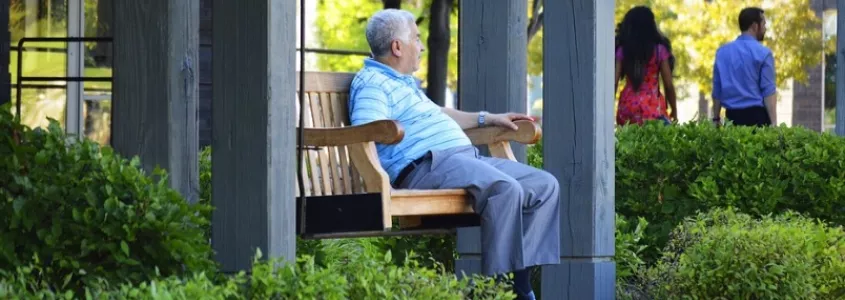
Civil servants, once they reach retirement age, are often faced with the question of whether they belong to the Régimen de las Clases Pasivas de la Seguridad Social or whether, on the contrary, they are part of the Régimen General. This is mainly because the two types of scheme have different conditions, with the former being more favourable than the latter.
Undoubtedly, this is an issue that generates a great deal of controversy due to recent changes in legislation. Here, as lawyers specialising in employment law, we are going to explain everything you need to know about it.
Who are included in the Social Security Pensioners' Pension Scheme?
The following is a brief description of the types of civil servants who can be included in this scheme:
1. Trainee or career civil servants of the Cortes Generales and of the Administration of Justice.
Trainee civil servants or career civil servants belonging to the General State Administration.
3. Trainee or career civil servants of any State or constitutional body that so provides.
4. Career military personnel, troops, complementary scales, professional seamen and members of the Knights Cadets. Also included in this point are candidates and students of military academies and schools.
5. Officials who have been transferred from their respective autonomous communities.
6. Ministers of the Spanish Government, vice-presidents and former presidents.
When did the controversy arise?
The key moment for the Social Security Pension Scheme came with the implementation of Royal Decree-Law 13/2010. Specifically, this focused on certain liberalising actions in the labour and tax spheres with the aim of promoting employment and investment.
This legal text determined that, as of 1 January 2011, all those who took up a civil servant post would not be able to join the Pension Scheme. Therefore, although it is still in force, it is only applicable to those who already had their position before. They continue to have their disability, widowhood, retirement and orphan's pensions covered in the same way as before the Royal Decree-Law was passed.
What types of passive pensions are there?
Specifically, the Social Security Pension Scheme provided for three different types of pension. These were ordinary, extraordinary and exceptional pensions.
Ordinary pensions are those received by civil servants when they retire or become permanently incapacitated. They also include widow's, widower's or orphan's benefits paid to immediate family members in the event of death or disappearance in the line of duty.
Extraordinary allowances are usually reserved for civil servants who are considered to be victims of terrorism or an act of a similar nature. Finally, exceptional awards are granted to a specific individual for a specific and particularly relevant issue.
It should be added, at this point, that the Directorate-General for Personnel Costs and Public Pensions is responsible for the retirement of civil servants who are still covered by the Social Security Pension Scheme. This is true except in the case of those corresponding to the army.
What are the conditions for eligibility for a retirement pension under the former social security passive class scheme?
The former Social Security Pension Scheme states that, in order for a civil servant to be entitled to a retirement pension, it is only necessary to have effectively served the State for 15 years.
Moreover, in order to calculate the amount of the retirement pension in such cases, all the years of service that the civil servant has been recognised must be taken into account, regardless of which group he belonged to at any given point in his career. This means that the change of status within the corps is not an important issue.
On the other hand, it also takes as equivalent any other situation which, in legal terms, could be assimilated, even if they belonged to other different regimes within the Social Security framework. To this end, this body established a reciprocal computation of contributions.
It should also be noted that the Social Security Pension Scheme continues to consider 65 years of age as the ordinary and compulsory retirement age. In other words, even if a civil servant passes his or her competitive examination and enters the service in 2009, for example, he or she will not have to retire at the age of 67, as is the case for other workers under the General Scheme.
It should not be forgotten, moreover, that this regime allows certain civil servants to extend their retirement age to 70, always on a voluntary basis and rewarding in the amount of the pension the years of service rendered in excess. These include magistrates, university professors, public prosecutors, judges, property registrars and court clerks.
This section also includes the right to early retirement, which is contemplated under different requirements. Specifically, civil servants who are eligible for this scheme will be able to retire at the age of 60, provided they can demonstrate 30 years of service to the State.
Is there any incompatibility with the Social Security Pension Scheme?
The answer is yes. In accordance with current legislation, when a person is entitled to receive more than one pension from the Social Security Pension Scheme, it is incompatible for them to receive them at the same time. The same applies when a civil servant who is already receiving one pension becomes entitled to another. In such cases, he/she will be obliged to choose the one he/she considers most convenient to his/her interests. However, this right may not be exercised more than once in any case.
When do pensions from the Régimen de las Clases Pasivas de la Seguridad Social start to be paid?
The law is also very clear in this respect. Specifically, it specifies that pensions corresponding to the Régimen de las Clases Pasivas de la Seguridad Social will start to accrue from the first day of the month following that in which the retirement, death or retirement of the civil servant in question takes place. It should be noted that in the event of the death of the person concerned, the widow's/widower's and/or orphan's pension would be paid.
This is one of the main exceptions to the general scheme. In the event that the civil servant dies without leaving a widowed spouse or orphans who are legally entitled to receive the pension, it is his or her parents, if they are still alive, who would be entitled to receive it monthly. The time to start receiving the pension is the same as in the previous case.
As you will have seen, the Social Security Pension Scheme is a complex subject. However, we hope that we have helped you to clarify your doubts as much as possible.

"Anywhere in Spain"
With our online appointment system you will have immediate advice without the need for face-to-face visits or travel.
One of our lawyers specialized in your area of interest will contact you to formalize an appointment and make your consultation by video call.

Add new comment